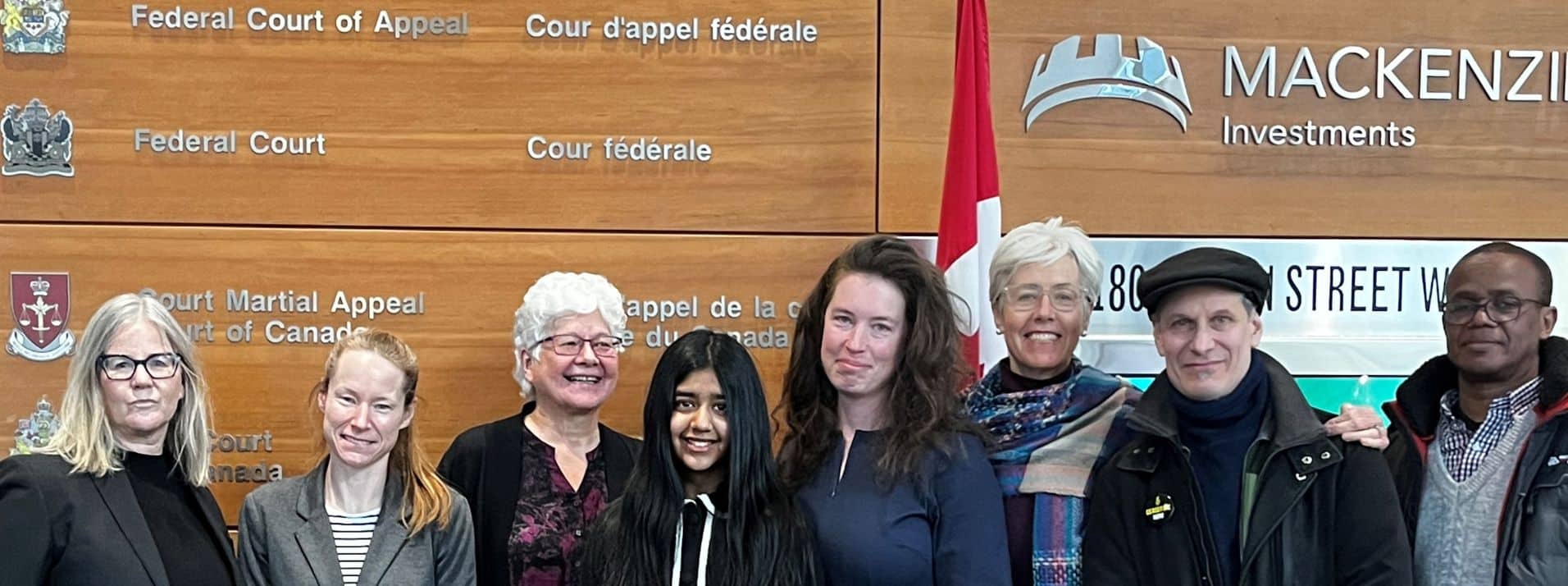
2024 Review – Looking Back and Looking Forward
Thank you! We gratefully appreciate your generosity and support – Friends of the Earth Canada couldn’t do this important work to protect people and the planet without the generous contributions of people like you who support our work with donations and/or with important actions on petitions and other advocacy measures.
We are also very grateful to our board, staff, allies, pro bono lawyers, interns, and volunteers.
Looking Back and Looking Forward
2024 and 2025 are stock taking years for FOE Canada. We’re taking a look at what we’ve accomplished and learned from over ten years of campaigning to ban bee-toxic pesticides, over thirty years of using the courts to insist on environmental safeguards and almost 40 years with collaborative efforts as the Canadian member of the 70-country Friends of the Earth International. FOE is heading towards it 50th anniversary in 2028 and we’ll be reaching out this year for your advice for the future.
In 2024, we were in the courts to challenge Canada’s pesticide regulator on rubber stamping approvals of products containing pesticides like glyphosate, intervening in the precedent setting climate case using the Canadian Charter of Rights and Freedoms to insist on more strenuous climate action by Ontario, testing pesticides in flowering plants labelled as “pollinator friendly”, campaigning for the new Global Plastic Pollution Treaty and more.
We couldn’t take on this work without the generous financial support from your, our donors, important support for petitions and calls for action by supporters, amazing research and campaign development by advisors and volunteers and critical pro bono legal work by top lawyers and Ecojustice. Thank you! Please read on for a brief report and go to our website for more details.
The Bee Cause
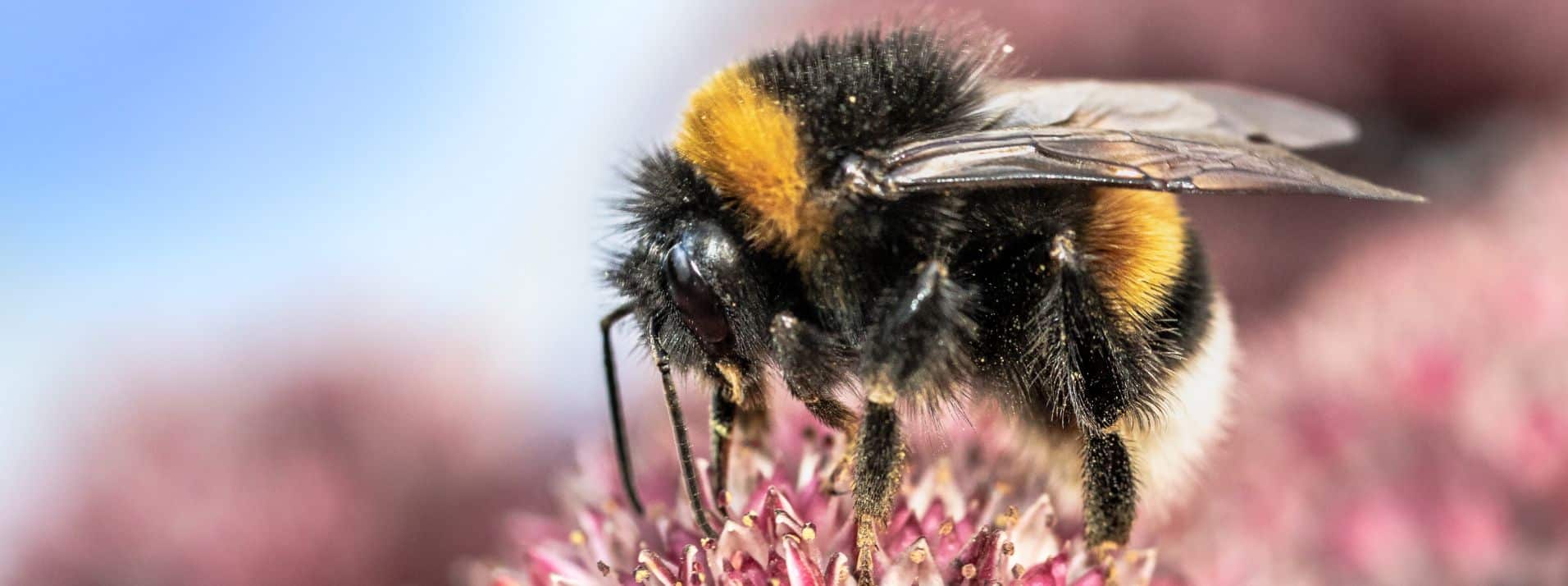
The Bee Cause campaign to save all bees while educating Canadians about the state of their wild, native bees
Due to our multi-year flower testing, most garden centres now report they offer neonic-free flowering plants, but we wanted to check this out. We did our preliminary testing in summer 2024 in one city. We found garden centres promoting “pollinator friendly plants” were, in fact, selling plants with residues of newer systemic pesticides including seven fungicides and seven insecticides.
To help gardeners select plants that are truly pollinator friendly, FOE will launch its new “right to know” campaign for gardeners. We want to test flowering plants across Canada while mobilizing gardeners to demand their right to know what’s used by nurseries to grow plants on offer. We’ll be calling for help from “mystery shoppers” to document advertising for pollinator friendly plants. If our suspicions are proved out, we’ll launch a greenwashing case.
FOE Tells PMRA To Stop Rubber Stamping Approvals

FOE, along with the David Suzuki Foundation, Safe Food Matters, and Environmental Defense Canada, were represented by Ecojustice in challenging Health Canada’s renewal of pesticide products containing glyphosate, the chemical used in “Roundup” and other herbicides. We said the federal regulatory agency failed to conduct a rigorous, up to date scientific assessment of glyphosate before allowing the renewal of the glyphosate-based herbicide Mad Dog Plus, which is mainly used in forestry and agriculture in Canada. A decision is expected in mid-2025.
New science on the harms of glyphosate have emerged since Health Canada last re-evaluated the health and environmental risks of glyphosate in 2017. The evidence shows there are many risks that should have been considered, including the herbicide’s potential to cause cancer; an impact on the microbiome; neurodegenerative and reproductive toxicity; adverse impacts to pollinators (including monarch butterflies); ecological harms to freshwater ecosystems; and more frequent forest fires because of increased use of glyphosate in forestry.
Health Canada renewed Mad Dog Plus in December 2022 without updating its assessment of the risks to consider this more recent evidence of harm.

Applicants in the Judicial Review against PMRA for rubber stamping re-approval of Mad Dog Plus with the active ingredient, Glyphosate.
(Left to right)
Elaine MacDonald, Ecojustice
Charlotte Ireland, Ecojustice
Beatrice Olivastri, Friends of the Earth
Maya Thiru, Friends of the Earth
Cassie Barker, Environmental Defence
Mary Lou McDonald, Safe Food Matters
Gideon Forman, David Suzuki Foundation
Nick Bunyige, Friends of the Earth
Ecojustice Co-counsel Laura Bowman and Bronwyn Roe were busy behind the scenes.
Combating Climate Chaos
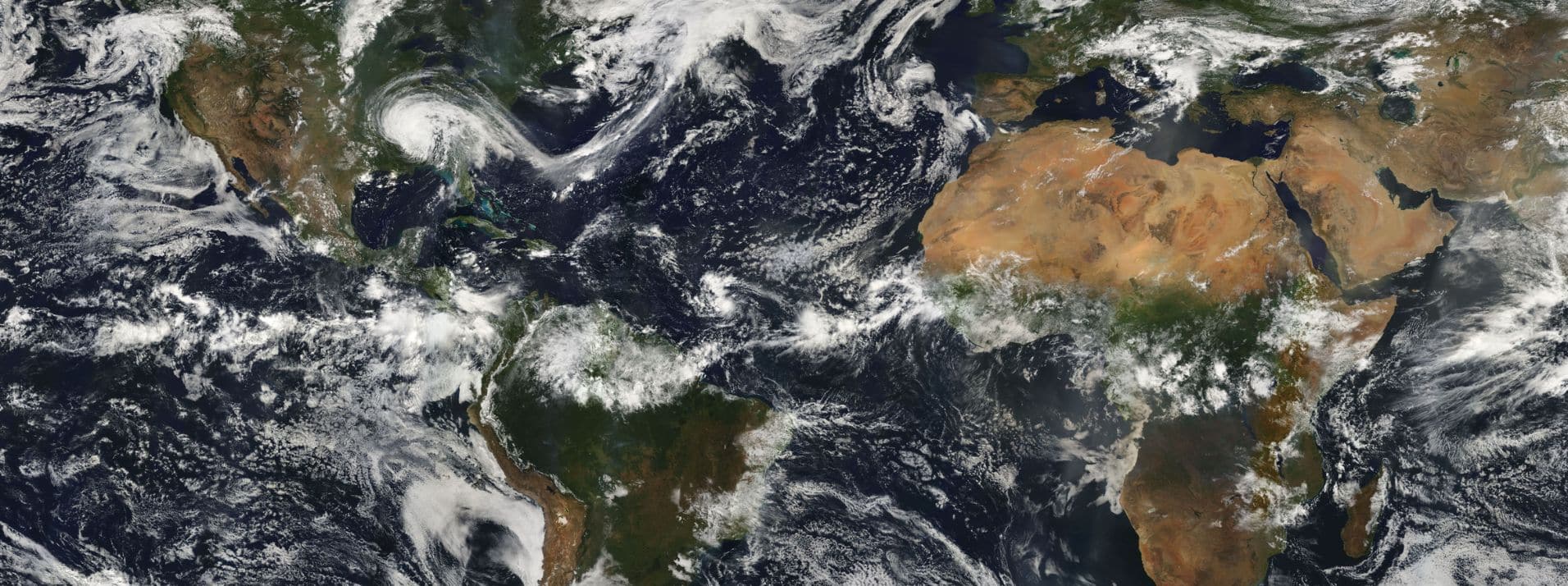
Friends of the Earth continues its contribution as an intervenor to the landmark climate lawsuit by seven young people, called Mathur et. al. It is the first climate lawsuit based on Charter-protected rights to be heard on its merits in a Canadian court. They argue that when the government repealed relatively strong carbon pollution reduction targets and replaced them with one inadequate target for 2030, it violated Ontario youth and future generations’ constitutional rights to life, security of the person, and equality.
Following a landmark victory handed down by Ontario’s top court in October, the Ontario government filed an application for leave to appeal the Mathur et. al case to the Supreme Court of Canada, setting the stage for a potentially monumental hearing at Canada’s highest court. If granted leave, this would mark the first time a climate case based on Charter rights is being decided at the Supreme Court of Canada, which could have far-reaching implications for how governments respond to climate change.
In their cross appeal submitted in late January this year, the applicants of the Mathur et. al case asked Canada’s top court to take swift and decisive action by either sending the case to an immediate hearing at the Lower Court or, if leave is granted, that the Supreme Court hear all aspects of this case and come to a final, fulsome resolution.
In either case, Friends of the Earth represented by co-counsels, Nathalie Chalifour and Erin Dobbelsteyn, will intervene to offer its insights and advice to the court.
International precedents
When Friends of the Earth Canada intervenes in climate cases, it draws on the precedent setting efforts of our colleagues in the 70-country Friends of the Earth International network.
Milieudefensie, Friends of the Earth Netherlands, took Shell to court over its inadequate efforts to combat climate change and won. In Shell’s appeal, the Court of Appeal has ruled that the oil and gas giant does have a responsibility to reduce its emissions but has not imposed a concrete reduction obligation.
Milieudefensie and its lawyers see a number of important points of reference to build on in their legal battle against large polluting companies. Lawyer Roger Cox said: “This is a ruling for the entire business community and not just for Shell. The court makes it abundantly clear that not only countries, but also companies have a responsibility to reduce their emissions in line with the Paris Climate Agreement.”
Furthermore, the Court emphasized that ‘protection from climate change is a human right and that companies like Shell also have a duty to protect human rights. The judges also found that Shell has a responsibility to reduce its CO2 emissions to limit dangerous climate change and that its nearly 800 new oil and gas fields are contrary to the goals in the Paris Climate Agreement.
The Court of Appeal also points to the European due diligence legislation, which holds large polluters such as Shell responsible for drawing up a climate plan and reducing their emissions in line with the Paris Climate Agreement.
Plastic Pollution
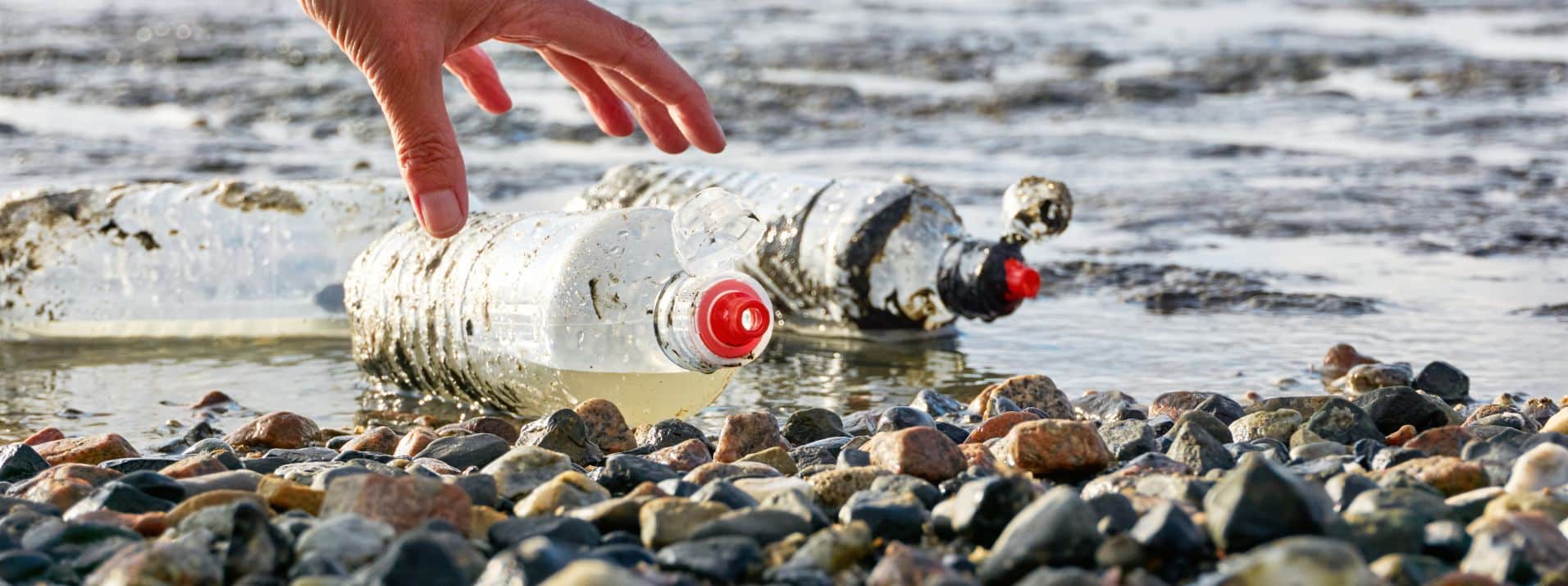
Towards a New Global Treaty on Plastic Pollution
FOE Canada is working at the federal level to urge Canadian leadership at home and globally as well as at the international level in support of the new Treaty. Canada hosted the fourth negotiating session in April 2024 and South Korea hosted the fifth in November. However, additional negotiations will be required in 2025 to, hopefully, finalize the terms of the new Treaty.
We are satisfied that Canada has joined the majority of countries in calling for the Treaty to address the whole lifecycle of all plastics and associated pollution while addressing upstream production controls and trade-related issues in the plastic cycle as of particular importance. A small but influential group of petroleum producing countries is blocking progress by refusing the focus on “production”.
At a domestic level, FOE has continued to call for additional bans on single use plastics and emphasize the linkage between fossil fuel production and plastic production.
DIG Agency
FOE’s call to Expand the Ban was treated to four different advertising treatments courtesy of Jake Volt, Professor at Algonquin College’s School of Media & Design and advertising students participating in their 2023 DIG Agency. Watch for the winning designs in FOE’s 2025 plastic pollution campaigns!
Environmental Rights – protecting vulnerable people and communities
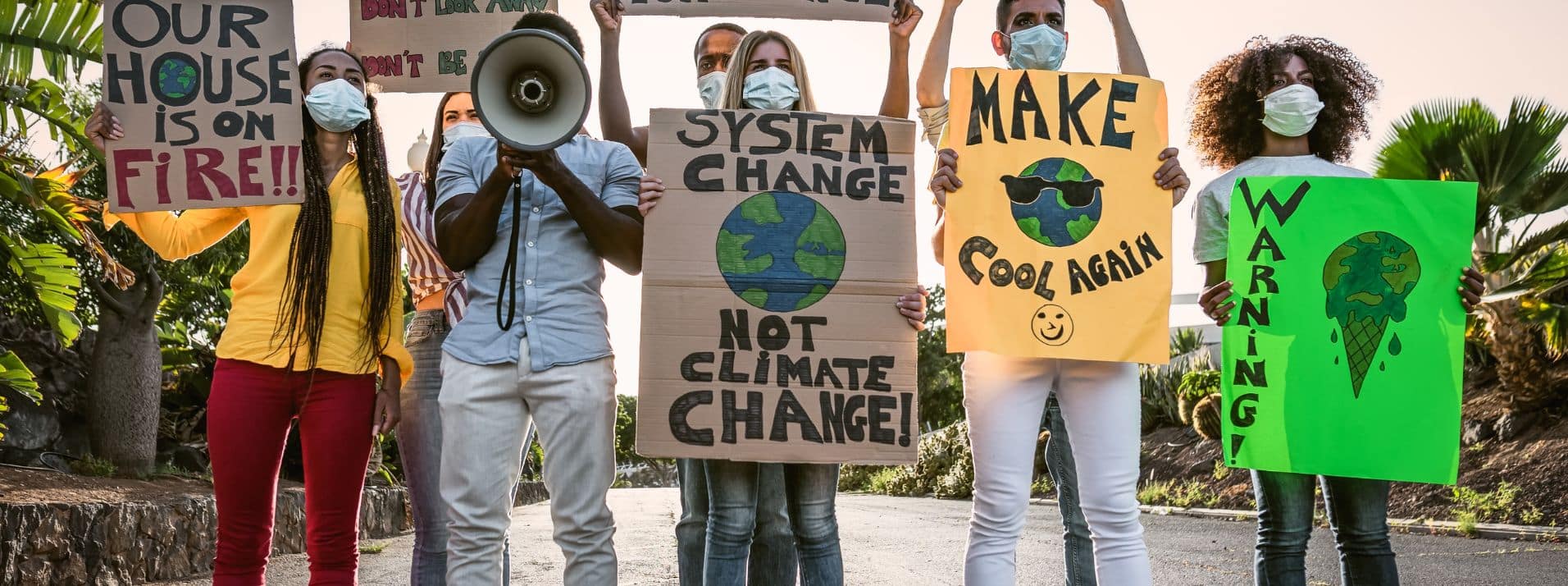
Talks on a business and human right treaty need Canada’s support
In late December, Friends of the Earth together with other members of the Canadian Network on Corporate Accountability (CNCA) called on the federal government to commit to urgent domestic measures that protect communities and workers around the world from harm.
In a letter to Minister of International Trade Mary Ng, the CNCA urged the government to engage in the Geneva talks and to commit to passing human rights and environmental due diligence legislation that holds Canadian corporations accountable for their impacts abroad. We also called for the federal government to provide the Canadian Ombudsperson for Responsible Enterprise (CORE) with the necessary powers to provide meaningful remedies and prevent abuses.
Friends of the Earth International (FOEI) has played an important Observer role in the decade of negotiations and brought the voices of the communities and social movements affected by corporate crime to the international stage, making sure that the true protagonists of this process are also represented in the room.
The 2024 negotiations centred on the rights and protection of victims, affected persons and communities and on the future Treaty’s ability to hold transnational corporations (TNCs) liable throughout their value chains. All Civil Society coalitions and several States have also called attention to the risks of corporate capture.
We say Canada has a particular responsibility to support these talks, given the significant number of extractive industries headquartered here and extensive global supply chains associated with social and environmental impacts overseas.
Clean Air is a Human Right
FOE, the Canadian Association of Physicians for the Environment (CAPE) and two local groups are represented by Ecojustice in calling on the Ontario Human Rights Commission (OHRC) to investigate the City of Ottawa’s ongoing practice of routing heavy trucks through the City’s densely populated downtown core. The move is part of ongoing efforts to address the urgent health threat posed by heavy truck emissions along the route and comes more than a year after an open letter to Ottawa Mayor Mark Sutcliffe, which has to date gone unanswered.
Air pollution is recognized globally as a major health risk — it is estimated that it causes approximately 6,700 premature deaths in Ontario every year. Diesel emissions from heavy trucks, like those along Ottawa’s trucking corridor, are considered the most hazardous pollution of vehicle emissions and pose serious risks to those within 50-250 metres of the roadway.
This is a precedent setting opportunity in taking an environmental and human health issue to the Commission. A Commission-led inquiry would allow for the development of human rights-based solutions, informed by consultations with Code-protected groups in Ottawa who are adversely impacted by the City’s practice and the Ontario’s inaction and by their shared failure to remedy this problem and prevent further discrimination.
Time to Ban Mercury in Dental Amalgam

Dental amalgam (inaccurately called “silver fillings”) is approximately 50% mercury — a neurotoxin and reproductive toxin. FOE called on Canada to follow the European Union’s decision to ban dental amalgam as of January 1, 2025. The European Union had already banned the use of amalgam in children, pregnant women, and nursing mothers in a regulation that went into effect in 2018.
Canada still maintains that “the use of dental amalgams is safe and that mercury exposure from dental amalgams does not pose a health risk for the general population.” Canada still stands by its 1996 policy, since renewed in 2020, that only recommended minimizing the use of amalgam in children, pregnant women and patients with kidney disease.
The EU’s 2018 measure was not considered enough to protect the environment and human health. They brought in a ban whereby amalgam use ended in all EU countries on 1 January 2025 (the regulation retains narrow, time-limited exemptions so a few Member States can adjust their insurance). Amalgam manufacture and import are phased out on a timetable, cutting off the supply of this mercury product in the EU. Amalgam exports are banned too — so the EU will no longer allow amalgam sellers to dump this toxic product in Africa or Latin America.
In Canada, amalgam use is still supported under government programs such as the Dental Benefits Guide for First Nations and Inuit: Non-Insured Health Benefits program.
FOE called on Canada to join the EU and other progressive countries to ban all uses of mercury in dentistry. We will be continuing this work in the lead up to the 6th Conference of the Parties for the Minamata Convention on Mercury at which time Canada will have to explain what steps it’s taken to halt the use of dental amalgam.
Allies and friends
FOE Canada is proud to be the Canadian member of the 70-country federation, Friends of the Earth International, the world’s largest grassroots environmental organization.
We are proud to be a member of the Green Budget Coalition, Canadian Coalition on Corporate Accountability and Mining Watch. Organizations with whom we collaborate include the Canadian Biotechnology Action Network (CBAN), David Suzuki Foundation, Ecojustice, Environmental Defence, Greenpeace, Safe Food Matters, and many others.




